When you hear the words “pool shark,” what do you think of? Some imagine a person who is extremely good at playing pool for money. A little more thought and most will further assume that a “pool shark”, or Hustler, is someone who pretends to be less talented than they really are.
In pool we call this “dumping”. To lose the game intentionally is to dump.
Many people imagine an encounter like this: “The Hustler will pretend to be a weak player who is foolish with money. They’ll gamble a small amount of money and dump the game. Then they challenge the player for a second game to ‘win their money back’, except for a much larger wager.” The cliché is the idea that a Hustler will lose $10 to play a rematch for $100 and then show their true skill level.
In reality, I have almost never seen it done this way. What I described above is a fantasy.
To begin, most pool Hustlers will not deliberately lose their own money, even one single time. It’s too risky, because there’s never a guarantee that the player will return for a second game. The essence of the hustle goes far beyond this.
If I lose a game for money, and I believe that the other player is truly better than me… then it’s all over. There is zero chance that I will gamble any more money against that player. Full stop.
However, if I believe that I lost a game because I was unlucky, then I might want to try again. Sometimes a pool Hustler will try to hide their talent behind a casual demeanor. They may approach the table in a hasty way, and pretend not to be concentrating.
If they make a difficult shot, they might play down their skill, “Wow, I never make those. I’m so lucky today.” But when there’s money on the line, it’s hard to convince someone that a good shot was luck. Anyone with even a little experience will recognize skill when they see it. It’s a look in the eye. There’s a smoothness in the stroke of the stick. The angle of crouching down to the table. Skill is hard to conceal. Try asking a talented musician to sing off-key, or to play an instrument with poor rhythm; they can’t do it.
But do you know what is the most powerful outcome that could convince me to gamble again after losing to someone? It’s not my idea of whether the other player had “good luck”. It’s my own idea that maybe I was the victim of “bad luck”. Or that I didn’t live up to my own ability. If I’m playing a game and I lose because I miss one or two critical shots that are normally within my ability, then I will have a very strong feeling that “I need a do-over, because I know I can do better.”
The goal of the Hustler is to convince the inferior player to gamble again, and again, and again, repeatedly losing money. Movies might make it look like it’s about “one big payout”, but it’s not. It’s about repetition. Any sane player will stop when they see that they keep losing. But what if there were a way to make an opponent think they are losing because of their own bad luck?
Allow my to introduce the “Hustler’s Table”. It is an evil invention that makes players think they are unlucky, or mysteriously playing below their own skill level.
How does it work? It is extremely simple. On a standard pool table, the correct size of a corner pocket is slightly more than two times the width of the balls. If you place two balls inside the jaws of a corner pocket, there should be enough room to squeeze a small finger in between.
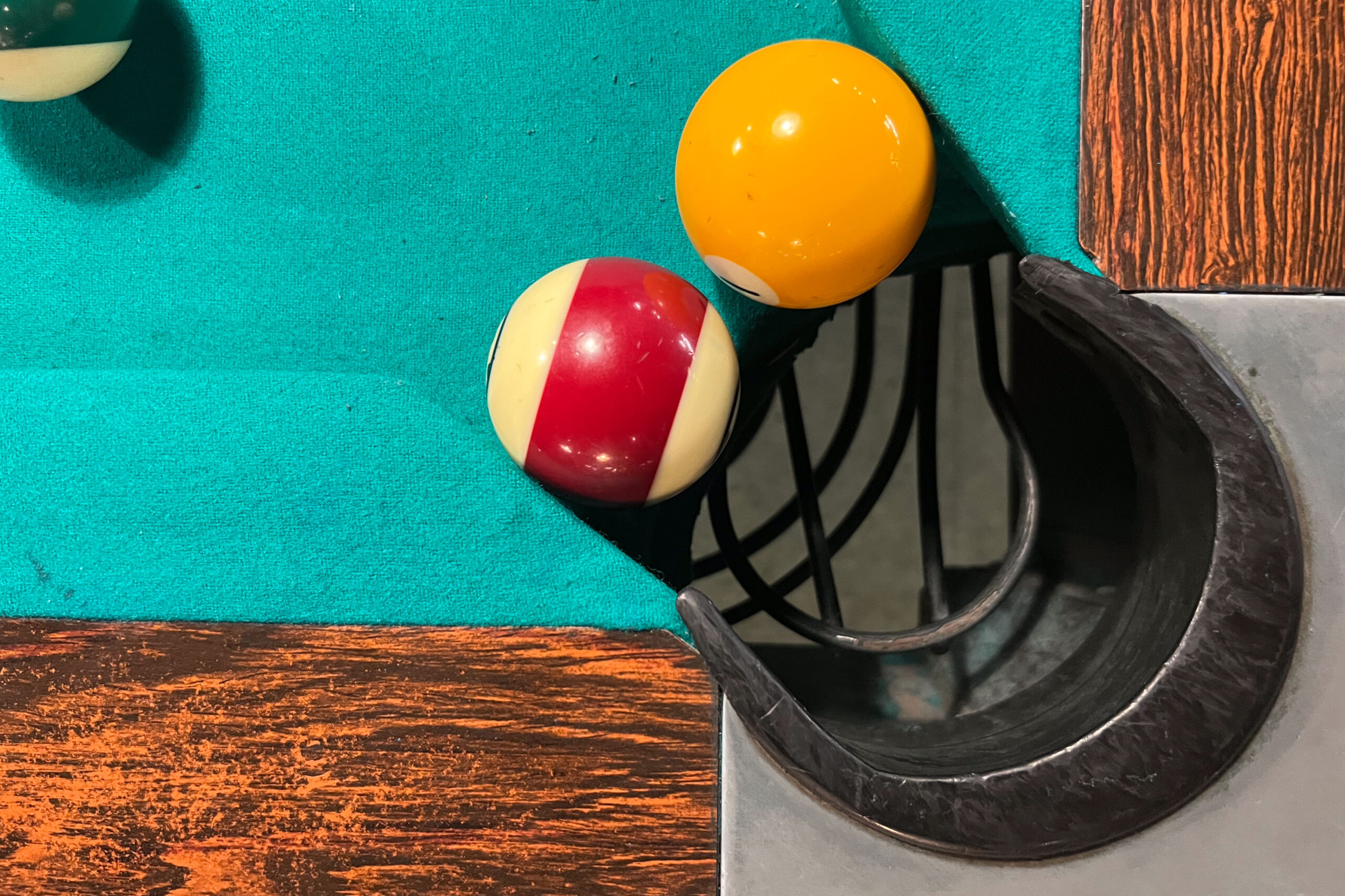
On a Hustler’s Table, the pockets are tighter. This affects both players equally. However the Hustler, who is aware of the tight pockets on the table, knows exactly what to expect. Also, presumably the Hustler is an accurate enough shooter to play effectively despite the increased challenges of the table.
The victim, however, does not know the reason why they are suddenly missing shots that are normally within their ability. The victim believes it is their own fault, and not the excellent skill of the Hustler, that is causing them to lose time and time again. The trick is that the table makes the player blame themself.
At Julian‘s pool hall, where I first learned to play, there were 52 tables. Each table had a lamp above it, and the lamps were painted either yellow or blue. Except for “Unlucky Table 13”. At Julian’s, #13 was the Hustler’s Table. Its lamp was colored red like a warning, and, of course, the number was chosen for the superstitious. The pockets were tight and the table sat within clear view of the manager’s desk. He liked to watch money games.
I think of the Hustler’s Table often — in business, and in other parts of life. When we think we are unlucky, or under-performing, it is good to remember that sometimes the odds are stacked against us in ways we cannot perceive.
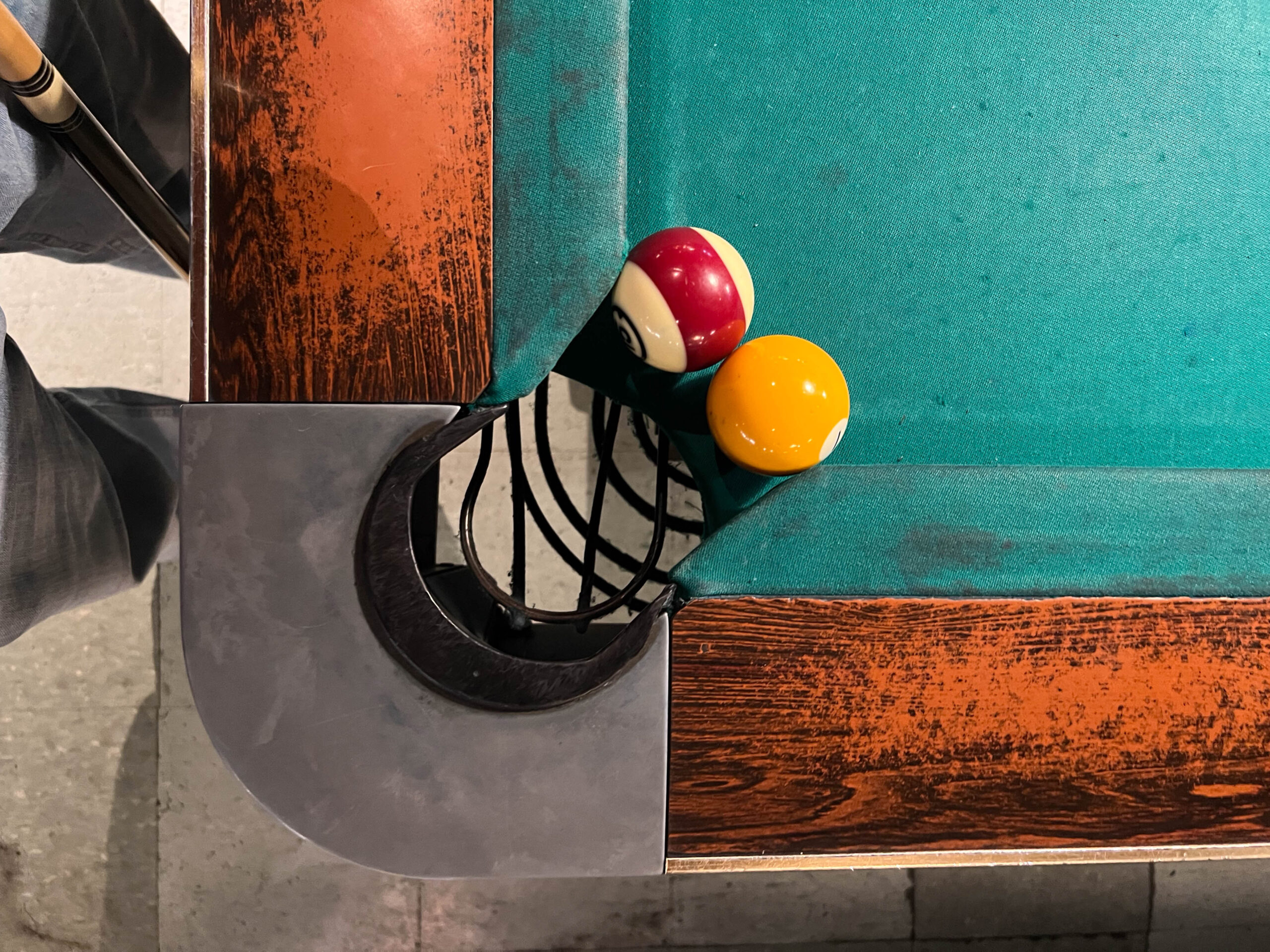

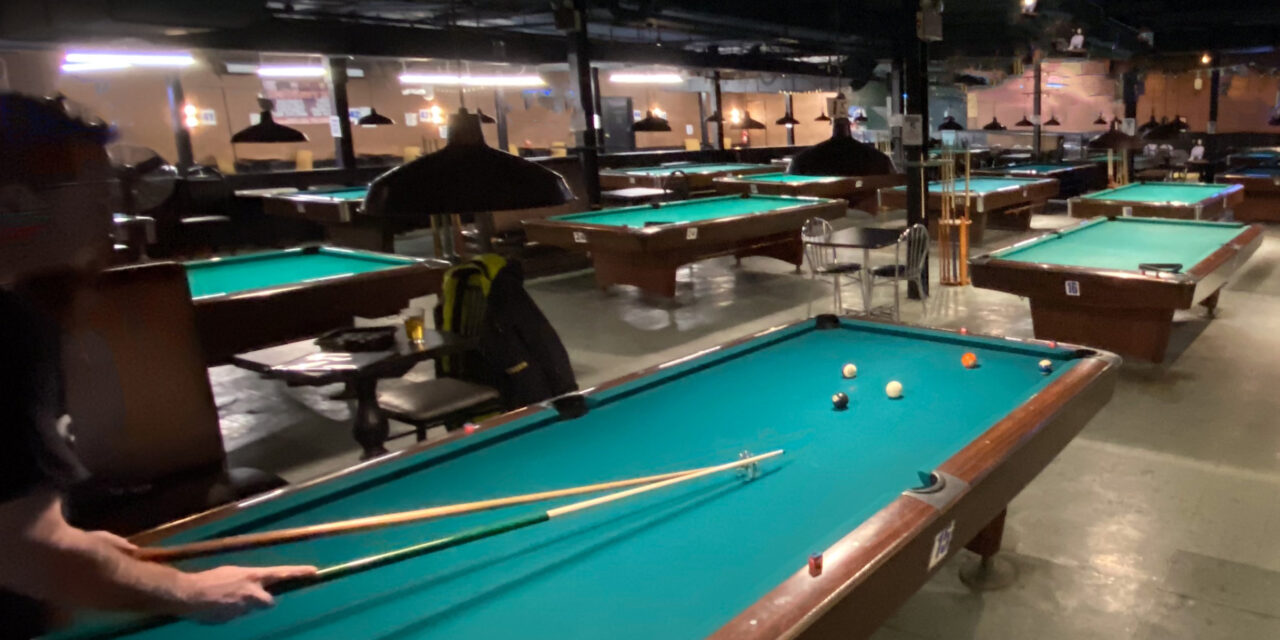
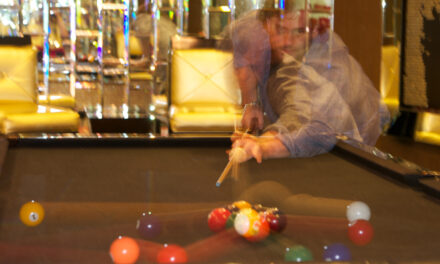
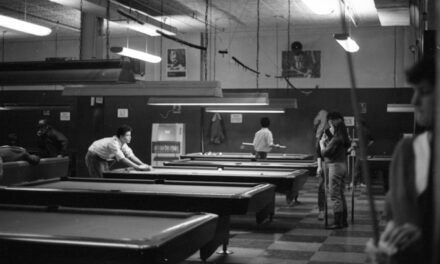


Nice illustration of table 13!
Wow, Julians… I used to play there. Thanks for the memory, and the lesson.